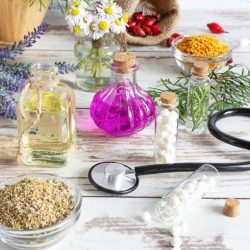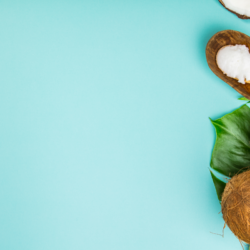Crohn’s disease is a transmural chronic inflammatory bowel disease . It usually affects the distal ileum and colon , but can occur anywhere in the digestive tract. Symptoms include diarrhea and abdominal pain. Abscesses, internal and external fistulas as well as obstruction of the intestine can occur. Extra-intestinal symptoms, including arthritis, may also occur.
A little history
The name of Burrill Bernard Crohn quoted thousands of times a day, and the digestive and systemic disease to which he gave his name been more than 70 years later, hundreds of original publications each year. Convinced like the entire school of physicians that surrounded him that regional ileitis should be considered as a separate affection, and therefore to be distinguished from other digestive granulomatosis, he has the opinion and, after almost 30 years, agree to be agree with the opinion of the majority.
However, the correctness of his initial conviction is confirmed by numerous clinical arguments that he had already observed by himself, but also now paraclinical from modern biology and genetics. His history, that of his convictions as well as that of the disease which will definitely bear his name , represent one of the greatest stages of gastroenterology of the 20th century.
What is Crohn’s disease?
Crohn’s disease (CD) is a chronic inflammatory bowel disease (IBD) usually affecting young people ; the peak diagnosis being around 30 years old. The annual incidence of the disease is, however, increasing in developed countries. It increased from 1988 to 1999 and then stabilized, except for the rate of pediatric forms (under 20 years) which continues to increase.
In France, CD would affect 80,000 to 100,000 people. CD is responsible for chronic inflammation of the intestinal wall which gradually leads to a loss of physiological function of the intestine . The evolution of the disease over time is associated with the appearance of intestinal complications represented by strictures, perforations as well as abdominal or pelvic abscesses. These complications, detected late in the majority of cases, often make it necessary to have surgery. Repeated resections which can lead to intestinal failure due to short bowel syndrome should be avoided as much as possible.
Some tips to help you cope better with Crohn’s disease on a daily basis
- Take the time to chew food
- Hydrate sufficiently
- Avoid snacking between meals
- Avoid industrial products, eat simple foods
- Take care of your body and mind
- Engage in regular physical activity
Are there herbal remedies to help with Crohn’s disease?
Among the interesting fields of application of phytotherapy , there are pathologies frequently encountered in general medicine for which conventional medicine does not have many solutions. Over the past fifty years, the incidence of Crohn’s disease has more than doubled. It is a multifactorial and idiopathic pathology using treatments such as anti-inflammatory drugs, corticosteroids, immunosuppressants and more recently anti-TNFs. However, these treatments unfortunately present in certain cases limits with an intolerance to the active principles and a resistance to the treatment sometimes leading to therapeutic failure.
Pineapple :
The anti-inflammatory and proteolytic intestinal digestive properties of pineapple have indeed demonstrated the decrease in the production of cytokines and inflammatory mediators by leukocytes and colonic epithelial cells. Thus in vitro , the treatment of colon biopsies from patients with chronic inflammatory bowel disease (ulcerative colitis or Crohn’s disease) with bromelain makes it possible to decrease the secretion of pro-inflammatory cytokines as well as of the chemokine MCP- 1.
Boswellie :
Traditionally used to treat gastritis, abdominal pain and diarrhea, boswellia is effective in inflammatory colitis, including Crohn’s disease.
Ispaghul :
In relation to its intestinal properties, ispaghul is therefore used in chronic inflammatory bowel diseases such as ulcerative colitis, Crohn’s disease, and collagen colitis.
The Lion’s Mane :
This mycological species acts on the regeneration of damaged gastric and intestinal mucous membranes . It is also useful for the treatment of inflammatory bowel diseases.
Hericium 180:
Medical bibliographic sources and clinical trials :
- Colombel JF, et al. [Epidemiology and risk factors of inflammatory bowel diseases]. Bull Acad Natl Med, 2007
- Loftus EV. Jr., Clinical epidemiology of inflammatory bowel disease: Incidence, prevalence, and environmental influences. Gastroenterology, 2004
- Peyrin-Biroulet L, et al. The Natural History of Adult Crohn’s Disease in Population-Based Cohorts. Am J Gastroenterol, 2009
- Ng SC and Kamm MA. Management of postoperative Crohn’s disease. Am J Gastroenterol, 2008
- Onken JE et al., Bromelain treatment decreases secretion of proinflammatory cytokines and chemokines by colon biopsies in vitro, Clin. Immunol., 2008
- Gerhardt H. et al., Therapy of active Crohn disease with Boswellia seratta extract, Z Gastroenterol., 2001





